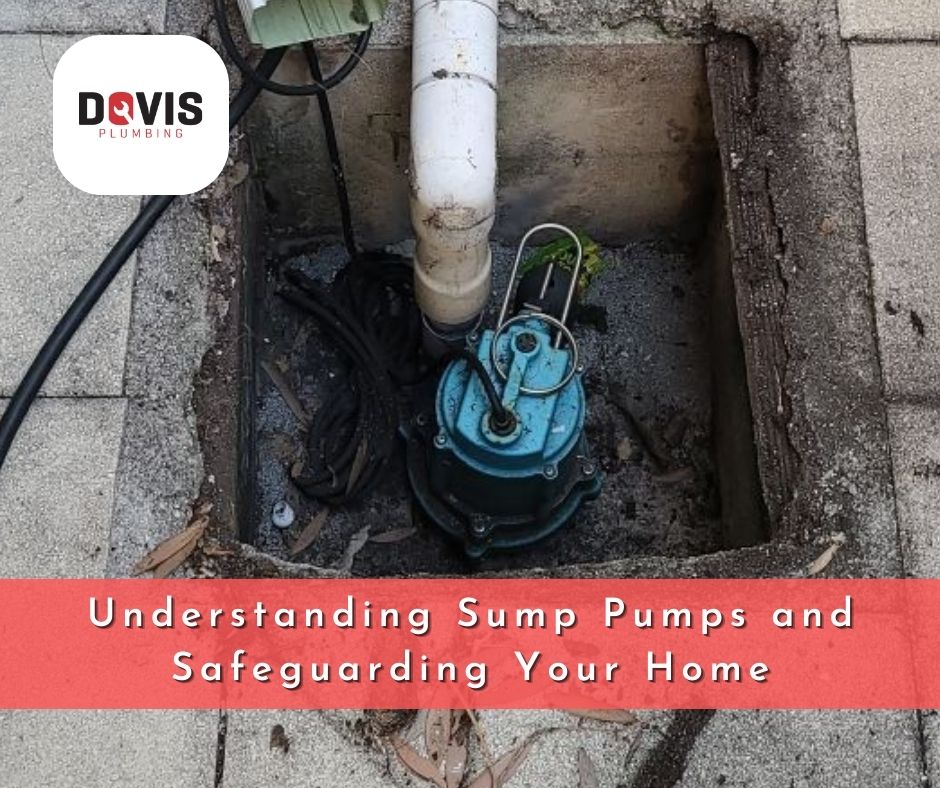Understanding Sump Pumps
Are you worried about potential flooding wreaking havoc in your Homes basement in Davie, FL? Fear not, because Dovis Plumbing is here to guide you through the world of sump pumps and help you choose the perfect one for your home. Let's dive into the nitty-gritty of what a sump pump is, how it operates, and why it's crucial for protecting your home from the nightmares of water damage.
Understanding the Basics: What is a Sump Pump?
Picture this: heavy rains, rising waters, and the looming threat of a flooded basement. Your Homes sump pump in Davie, FL is your superhero in this scenario. This essential device removes water from your basement and directs it away from your home, preventing costly repairs and structural damages. But with various types of sump pumps available, choosing the right one is paramount.
How Does a Sump Pump Work?
At its core, your Homes sump pump in Davie, FL is a guardian that detects rising water levels or pressure. Housed in a basin, it activates a switch when water levels get too high, pumping the excess water away through a discharge line. This line connects the pump to a designated drainage area, ensuring your property stays dry and safe.
Explore the World of Sump Pumps: Types Unveiled
Submersible Sump Pump
These pumps, submerged in a basin, are quiet, space-efficient, and less prone to clogging. Ideal for homes with significant flooding concerns in Davie, FL.
Pedestal Sump Pumps
With a separate motor and pump, these boast a longer lifespan and easier accessibility for maintenance. However, they might take up more space and be louder.
Battery-Operated Backup
A lifesaver during power outages, these pumps, with a float switch, kick into action when the main Homes power source in Davie, FL fails.
Water-Powered Backup
Operating through increased water pressure, this type doesn't require battery replacements but can significantly raise your homes water bill in Davie, FL. Some cities may have regulations against their installation.
Choosing the Right Sump Pump for Your Home
Selecting the right horsepower is crucial. For an average-size home with regular rainfall in Davie, FL, a standard pump will suffice. Deeper water tables or heavier seepage might demand a one-half horsepower submersible pump, while major flooding requires a robust 13000 GPH pump. Opt for a cast iron core for durability and consider a pump with an alarm for early warnings.
Understanding Sump Pump Switches
Sump pumps operate on various switch systems:
Pressure Switch: Responds to water pressure changes.
Vertical Float Switch: Moves along a rod, triggering the pump as water rises.
Tethered Float Switch: Floats in the basin, signaling the pump when water levels are high or low.
Diaphragm Switch: Operates by flexing as pressure changes.
Electronic Switch: Responds to water pressure within the basin.
Enhancements and Accessories for Your Sump Pump
Add-ons like water alarms and extended drainage hoses provide additional security. Though the cost of a sump pump ranges from $100 to $1000, professional installation, ranging from $600 to $3000, ensures a well-functioning system.
Factors Influencing Sump Pump Costs
Considerations like the pump type, basement material, drainage requirements, permits, and professional installation contribute to the overall cost. A well-chosen sump pump is an investment that can save you from costly water damage in the long run.
Are Sump Pumps Necessary?
Absolutely. Homes prone to flooding, whether due to rainfall or a low water table, need sump pumps. Beyond preventing floods, they mitigate moisture-related issues like mold, safeguarding your health and property.
Alternatives to Sump Pumps
French Drains: Redirect water paths to prevent pooling.
Waterproofing Compound: Seal wall cracks to minimize water entry.
Gutter Maintenance: Ensure gutters effectively channel water away.
Sloping the Ground: Correct grading around the home to prevent water accumulation.
Why Do Sump Pumps Fail?
Installation errors, machine issues, and lifespan limitations can lead to sump pump failure. Regular maintenance and understanding the signs of failure are crucial for avoiding water damage.
Do You Need a Backup Sump Pump?
While not mandatory, having a backup pump is highly recommended. It ensures continued protection during power outages or primary pump failures, safeguarding your home from unexpected storms.
When to Replace Your Sump Pump
If your pump is making unusual noises, running constantly, cycling irregularly, or is over a decade old, it's time for a replacement. Early detection and timely replacement prevent water damage and costly repairs.
In conclusion, your home's safety is our priority at Dovis Plumbing. If you're uncertain about the right sump pump for your needs or have questions, feel free to comment or contact us. Stay tuned to our learning center blog for more insights into water systems that enhance your home's safety and well-being.






